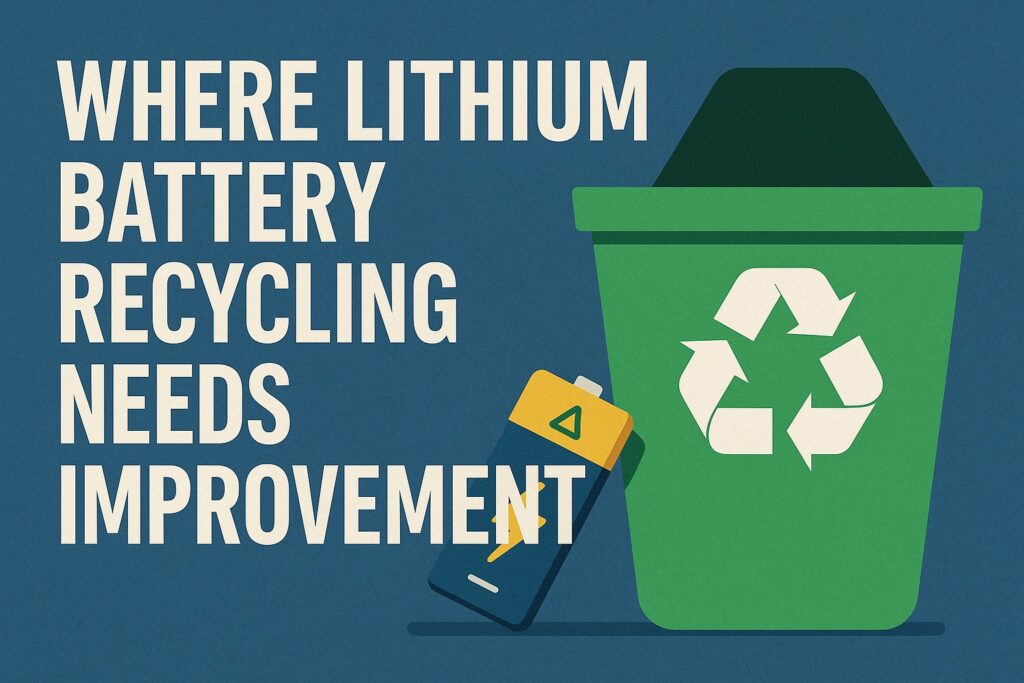As the demand for lithium-ion batteries grows rapidly, so does the urgency to recycle them efficiently and sustainably. At SK-Tes we see the potential and the challenges of giving these critical resources a second life. While recycling processes have advanced considerably, there are still important areas, where optimization is needed:

- Complex battery design: Modern batteries are not designed with recycling in mind. Their compact, multi-layered structures make disassembly and material separation extremely difficult. Manual processes are labor-intensive, while automation is not yet fully reliable. To overcome these challenges, future battery development must integrate design-for-recycling principles, enabling easier recovery of valuable materials.
- Recovery efficiency: Current methods often result in suboptimal recovery rates, particularly for active materials such as lithium, nickel and cobalt, which hold the highest economic and functional value within the battery. These inefficiencies can stem from compromised process performance or poor-quality Black Mass. However, when assessing overall recovery rates, it is important not to overlook other battery components—such as electrolytes, binders, and separators. Although these fractions have lower economic value, their recovery is often neglected today, despite their relevance for environmental impact and process sustainability. Environmental and safety risks: Improper handling can release toxic substances or cause thermal runaway incidents. Current recycling plants must balance throughput with strict safety standards – sometimes at the cost of efficiency. Additionally, the diversity of feed materials, including different battery designs and varying states of end-of-life (EoL) batteries, increases operational complexity and safety risks. These variations demand adaptable processes and robust safety protocols to ensure reliable and secure recycling.
- Economic viability: Recycling must compete with virgin material extraction, which is often cheaper. Without significant improvement in yields, process energy efficiency, and logistics, large-scale recycling struggles to be financially sustainable. Today, policy incentives are still lacking or insufficient, making it harder to scale economically. Stronger support aligned with EU circular economy goals is needed to close this gap.
The BeyondBattRec project brings together leading expertise across industry and research, with SK-Tes as a key partner. Our role is to ensure that the innovations developed can be applied at scale and improve real-world recycling performance.
- Smarter pre-treatment: the project explores advanced methods for safe disassembly and sorting, reducing contamination, improving material purity, and enhancingdownstream recovery efficiency.
- Higher material recovery: by improving hydrometallurgical and direct recycling techniques, BeyondBattRec aims to maximize recovery rates for critical raw materials.
- Sustainable processing: Innovations target lower energy consumption and reduced emissions, ensuring that recycling delivers genuine climate benefits, aligned with EU Green Deal objectives.
- Industrial feasibility: At SK-Tes, we focus on how these methods can be integrated into operational facilities, ensuring that optimization isn’t just technically sound but also scalable and economically viable.
Lithium battery recycling still has a long road ahead, but projects like BeyondBattRec are accelerating progress. By optimizing recovery, improving safety, and demonstrating industrial scalability, we can close the loop for batteries – keeping valuable resources in Europe’s economy and reducing reliance on virgin mining.
Together with our partners, we believe BeyondBattRec will play a decisive role in shaping a more sustainable and resilient battery value chain.
Picture by acib (generated with ChatGPT)

